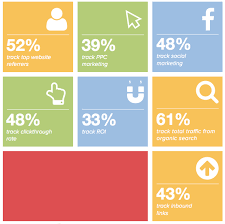The Power of Digital Marketing and Analytics
In today’s digital age, businesses are constantly looking for ways to reach their target audience effectively. Digital marketing has become an essential tool for companies to promote their products and services online. However, simply implementing digital marketing strategies is not enough. It is crucial for businesses to analyze the performance of their campaigns through analytics to understand what works and what doesn’t.
Understanding Digital Marketing
Digital marketing encompasses a wide range of online tactics such as social media marketing, email marketing, search engine optimization (SEO), content marketing, and more. These strategies help businesses connect with their audience, generate leads, and drive sales.
The Role of Analytics
Analytics plays a critical role in digital marketing by providing valuable insights into the performance of various campaigns. By tracking metrics such as website traffic, conversion rates, click-through rates, and more, businesses can identify trends and patterns that help them optimize their strategies for better results.
Benefits of Using Analytics in Digital Marketing
By leveraging analytics tools, businesses can:
- Measure the effectiveness of their campaigns
- Identify areas for improvement
- Understand customer behavior
- Make data-driven decisions
- Allocate resources more efficiently
Conclusion
Digital marketing combined with analytics is a powerful combination that can help businesses achieve their goals more effectively. By utilizing data-driven insights to refine their strategies, companies can stay ahead of the competition and drive success in today’s competitive online landscape.
5 Essential Tips for Enhancing Your Digital Marketing Strategy with Data and Analytics
- Utilize data analytics to track and analyze the performance of your digital marketing campaigns.
- Set specific goals for your digital marketing efforts to measure success effectively.
- Regularly monitor key performance indicators (KPIs) to make informed decisions and optimize strategies.
- Segment your target audience based on demographics, behavior, or other factors for more personalized marketing approaches.
- Experiment with different digital channels and tactics to find what works best for reaching your target audience.
Utilize data analytics to track and analyze the performance of your digital marketing campaigns.
Utilizing data analytics to track and analyze the performance of your digital marketing campaigns is essential for maximizing their effectiveness. By monitoring key metrics such as website traffic, conversion rates, and engagement levels, businesses can gain valuable insights into what strategies are working well and where improvements can be made. This data-driven approach enables companies to make informed decisions, optimize their campaigns in real-time, and ultimately achieve better results in reaching their target audience and driving conversions.
Set specific goals for your digital marketing efforts to measure success effectively.
Setting specific goals for your digital marketing efforts is crucial for measuring success effectively. By defining clear and measurable objectives, such as increasing website traffic, improving conversion rates, or boosting social media engagement, businesses can track their progress and determine the impact of their strategies. Setting specific goals not only provides direction for digital marketing campaigns but also allows for better analysis through analytics to gauge performance and make informed decisions for future initiatives.
Regularly monitor key performance indicators (KPIs) to make informed decisions and optimize strategies.
Regularly monitoring key performance indicators (KPIs) is crucial in digital marketing and analytics to make informed decisions and optimize strategies effectively. By keeping a close eye on metrics such as website traffic, conversion rates, click-through rates, and other relevant data points, businesses can gain valuable insights into the performance of their campaigns. This data-driven approach allows companies to identify trends, spot areas for improvement, and adjust their strategies accordingly to maximize results and achieve their marketing objectives.
Segment your target audience based on demographics, behavior, or other factors for more personalized marketing approaches.
Segmenting your target audience based on demographics, behavior, or other factors is a crucial tip in digital marketing and analytics. By dividing your audience into specific groups, you can create more personalized marketing approaches that resonate with their needs and preferences. This targeted approach allows you to deliver tailored messages and offers that are more likely to engage and convert your audience. By leveraging segmentation in your digital marketing strategies, you can enhance the effectiveness of your campaigns and drive better results.
Experiment with different digital channels and tactics to find what works best for reaching your target audience.
To maximize the effectiveness of your digital marketing efforts and analytics, it is crucial to experiment with various digital channels and tactics to determine the most successful approach for engaging your target audience. By testing different strategies, such as social media marketing, email campaigns, SEO techniques, and content marketing, you can identify which methods resonate most with your audience and drive the best results. This iterative process of experimentation and analysis allows you to refine your approach continuously and optimize your digital marketing efforts for maximum impact.




